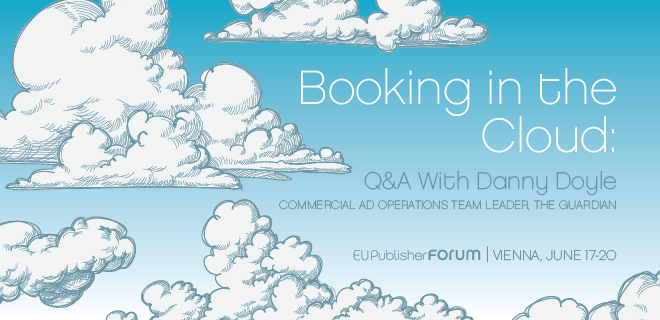
As part of The Guardian’s Digital First strategy, the esteemed news outlet implemented and migrated to a booking system that encompass all of its products: print, desktop, mobile, app, you name it. During Publisher Forum Vienna next week, Danny Doyle, Commercial Ad Operations Team Leader, and colleague Rezaul Haque, Applications Analyst, will detail the required reorganization of sales and operations practices, but Danny has been kind enough to give us all a preview of the talk through this Q&A.
Why did the Guardian decide to overhaul their booking system?
This is the second phase of our ad systems renewal, which is part of our Digital First strategy – to invest in technology that can compete in today’s (and, more important, tomorrow’s) complex market place. Phase 1 was upgrading our ad server and getting a CRM system and an optimiser in place. This phase has been about installing a booking system that can encompass all our products whether print, desktop, mobile or app but also give us the best flexibility for growth and expansion in the ever-changing and evolving digital space.
Our previous system was becoming marginalised as the digital space has now become intricate, so we have invested in a cloud-based booking system. This way we can update products and packages as they emerge. Also the old booking systems relied on a lot of manual data entry and involved a lot of re-keying at each phase of the booking. We wanted a degree of automation and a clear pipeline from a sales opportunity, though to the live booking to reporting and billing.
What was the roadmap for this project?
We appointed a Business Change and Implementation Manager as with over 200 sales people booking ads at the Guardian, this was quite a mammoth task
What strategies did you consider and why did you ultimately make the decisions you did?
We researched suppliers from the print and digital workflow market, a bundle of bespoke solutions and considered building our own. Operative.one offered the best solution for our requirements so we have partnered with them.
What changes were made and how is the new booking system different from the old one?
We mapped all existing products (over 7,000) and also included a pricing structure on to our new booking system so that’s been standardised. Using this method, sales can book products ‘off the menu’. It should now be a lot easier to book an integrated package.
The new system has many advantages, for example we recently launched Guardian Response, a quality audience DR proposition, which can include re-targeting and conversion elements. This would have been quite resource heavy to book and also a degree of expertise to set up but we have already been able to build a package and map that to the ad server reasonably quickly which streamlines the whole process.
What benefits were realized when the new system was implemented?
For ad ops, the level of manual data entry has been reduced by a large capacity. Not only is this more efficient but there’s less margin of error and greater level of accuracy and accountability. The time saved on data entry can now be used to focus on revenue delivery and optimisation
Was there any trouble adopting and adapting to the new system?
When you go live, there will be people who embrace this change and others who preferred things how they were. For Sales, we rolled this out in stages, the people who booked the most digital campaigns went first to use the new system and then this is being gradually rolled out. For ad ops, this means a period of dual process but given the size of the task, this was expected.
What effects has the new system had on your operations?
When this was announced, some of the ad ops team thought, “Oh s—, we’re being replaced by machines!” But Sales will always need someone to guide and assist them in booking campaigns. We’re seeing display and sponsorship campaigns become more bespoke in nature, so ad ops need to be much more involved at the early stages.
We might see less time spent in the adserver and more time spent in the booking system as Operative.one has an inventory forecasting function and the campaign 360 feature can pull in third party impression data which is a bonus. I think the world of automation should be embraced because it’s not going away.
 |
Join Publisher Ad Operations and Ad Tech leaders from across Europe for this unmissable 3-day forum. Register today for 2012’s only European Publisher Forum, June 17-20, Vienna. |